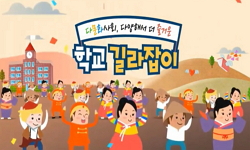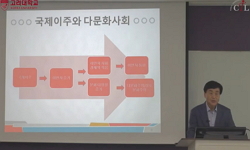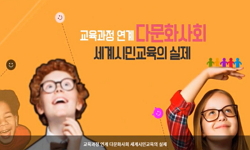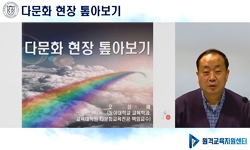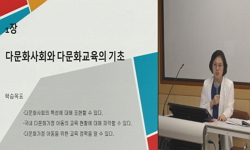The purpose of this study is to review the ‘Hongik Human’ ideology and re-examine its meaning, and to connect it with today's multicultural society to explore implications for peace and coexistence from a multicultural perspective. The ‘Hongik H...
http://chineseinput.net/에서 pinyin(병음)방식으로 중국어를 변환할 수 있습니다.
변환된 중국어를 복사하여 사용하시면 됩니다.
- 中文 을 입력하시려면 zhongwen을 입력하시고 space를누르시면됩니다.
- 北京 을 입력하시려면 beijing을 입력하시고 space를 누르시면 됩니다.
부가정보
다국어 초록 (Multilingual Abstract)
The purpose of this study is to review the ‘Hongik Human’ ideology and re-examine its meaning, and to connect it with today's multicultural society to explore implications for peace and coexistence from a multicultural perspective.
The ‘Hongik Human’ ideology has played a significant role in the history of Koreans, deeply embedded in the history of Korean thought from the Dangun era to the present, as a major context in the founding myth of our people with a long history. The ideology of ‘Hongik Human’ with these characteristics can be sufficiently established as an ideological basis for promoting cultural convergence in a modern multicultural society.
The ‘Hongik Human’ ideology contains the ideal of coexistence that any human being should be able to enjoy the benefits given by heaven without discrimination. For example, it is a world where opposing things coexist, like a world where bears and tigers can live in one cave. In the ideology of the ‘Hongik Human’, it is not self-righteousness that only I am right or self-existence that only I exist, but harmony and coexistence that we should live in harmony with each other based on the universality of truth are deeply embedded.
In Dangun mythology, heaven, earth, and humans appear in order. Humans are born in the form of a heavenly soul planted in a land existence. Sky, land, and humans symbolize different cultures, suggesting a typical pattern of a multicultural society in which each culture is fused to form a new culture.
In the Dangun myth, the birth of Dangun can be said to mean the combination of heterogeneous cultures. The archetypal implications of multiculturalism are inherent in this myth, which embraces different opponents and their cultures and sustains communities in an orderly manner.
Today, as globalization and informatization have emerged as a huge trend in the global community, they are undergoing rapid changes in various fields such as social, political, economic, cultural, and religious. At this time, we need experts in each field to work together to find ways to more actively and actively utilize the wisdom of tradition obtained from the ‘Hongik Human’ ideology.
동일학술지(권/호) 다른 논문
-
- 영산대학교 동양문화연구원
- 김인규
- 2023
- KCI등재
-
- 영산대학교 동양문화연구원
- 송봉구
- 2023
- KCI등재
-
- 영산대학교 동양문화연구원
- 이규진
- 2023
- KCI등재
-
금강산순례에 관한 시대별 인식 변화 고찰 − 불교성지의 관점에서 −
- 영산대학교 동양문화연구원
- 김자현
- 2023
- KCI등재





 KCI
KCI KISS
KISS